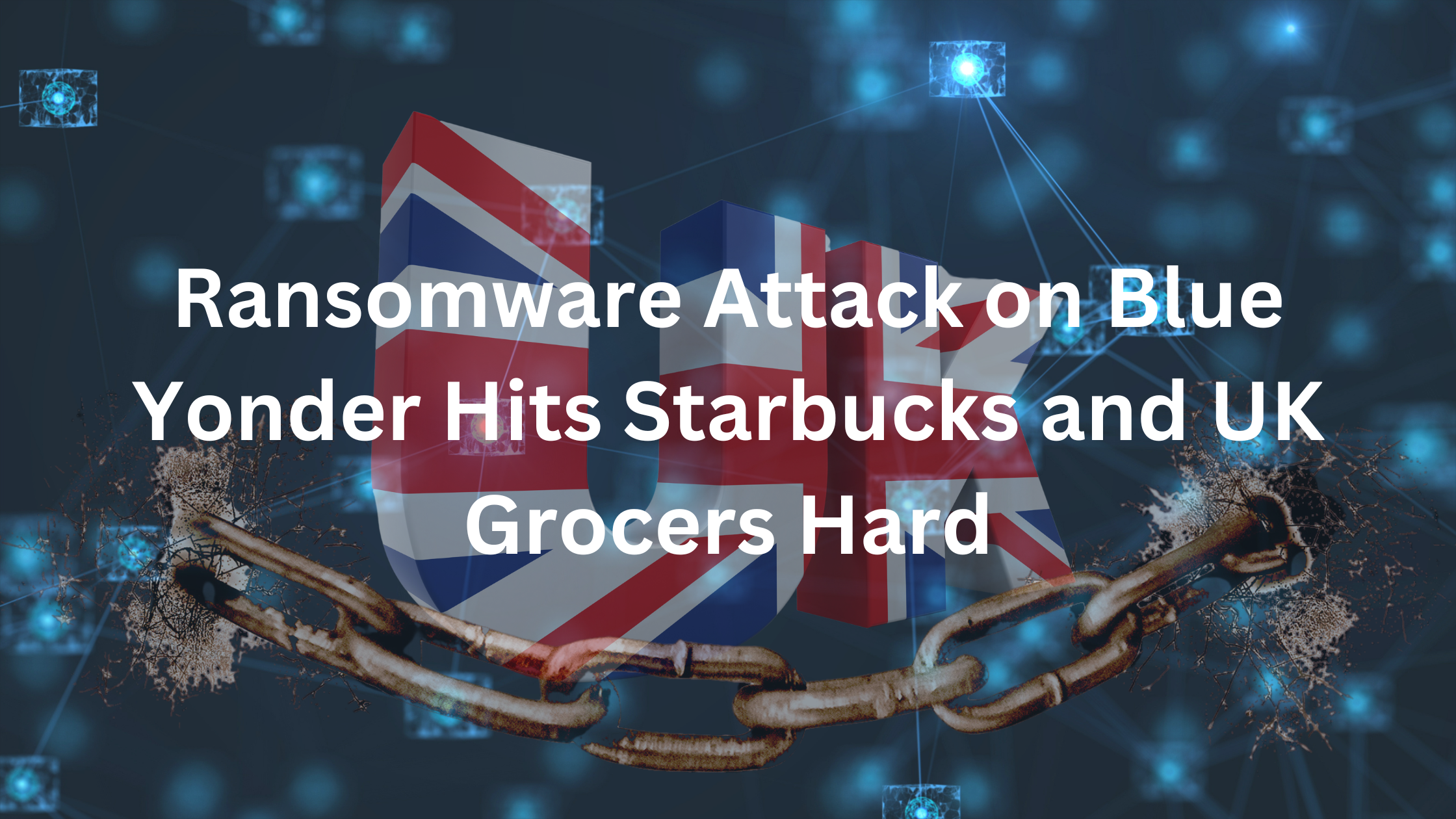Table of Contents
Ransomware Attack on Blue Yonder Hits Starbucks and UK Grocers Hard
In a severe blow to several major retail and grocery chains, supply chain management software provider Blue Yonder, a division of Panasonic, was recently hit by a devastating ransomware attack. The incident, which was identified this past weekend, has caused widespread disruptions affecting the operations of companies like Starbucks and leading UK supermarkets such as Morrisons and Sainsbury's.
The ransomware attack targeted Blue Yonder's managed services hosted environment, leading to significant disruptions in payroll and scheduling systems for its global clients. Starbucks, a prominent user of Blue Yonder's software for managing employee schedules and hours, has been forced to revert to manual methods to ensure its employees receive compensation for hours worked. Despite the breach, the company has reassured customers that service quality remains unchanged.
UK-based Morrisons, one of the country's largest supermarket chains, has also suffered from the outage. The supermarket supply chains were impacted by the cyberattack on their warehouse management systems for fresh produce, forcing the company to utilize backup processes to maintain supplies. Similarly, Sainsbury's acknowledged a temporary disruption to its supply systems but confirmed that services have since been restored.
Blue Yonder, which boasts over 3,000 clients worldwide, has been working tirelessly to mitigate the impact of the attack with the help of external cybersecurity firms. The company's spokesperson, Marina Renneke, emphasized their commitment to addressing the incident, stating, "Our investigation remains ongoing, but our priority is to ensure a safe and secure recovery." However, Blue Yonder has yet to provide a timeline for when services might be fully restored.
This ransomware incident underscores the increasing prevalence and severity of cyberattacks targeting critical infrastructure in the supply chain sector. The attackers have not yet claimed responsibility, and it remains unclear if any customer data was compromised.
Ransomware attacks have become a major concern for businesses worldwide, with experts noting a significant rise in both the frequency and scale of these attacks. David Hall, a criminology professor at Leeds University, remarked on the broader landscape of ransomware attacks, stating, "We used to see five significant attacks a year in 2011; now we experience 20 to 25 major incidents daily." The situation with Blue Yonder, given its role in managing supply chains for high-profile organizations, highlights the vulnerability of third-party service providers and the cascading effects on their clients.
The incident has also raised questions about cybersecurity practices within the industry. As noted by Sunil Mallik, Chief Information Security Officer at Discover® Global Network, "The barrier for entry has never been lower for threat actors." This trend is pushing enterprises of all sizes to strengthen their cybersecurity strategies.
While Blue Yonder has not detailed the full extent of the attack's impact across its customer base, the company's response has been swift, with teams working around the clock to address the issue. The disruption comes at a critical time, just before the peak holiday shopping season, potentially affecting product availability and customer satisfaction for affected retailers.
The ransomware attack on Blue Yonder serves as a stark reminder of the vulnerabilities within supply chain management systems and the urgent need for robust cybersecurity measures. As businesses continue to rely on third-party providers for critical operations, the incident underscores the importance of preparing for and mitigating the risks posed by cybercriminals, who are increasingly targeting these interconnected systems.
Visit our website to get cybersecurity updates like this, thesecmaster.com, and our social media page on Facebook, LinkedIn, Twitter, Telegram, Tumblr, Medium, and Instagram and subscribe to receive tips like this.
You may also like these articles:
"SafePay Ransomware Breaches Microlise, Steals 1.2 TB of Data"
"SafePay Ransomware Targets Microlise, Threatens Data Leak if Demands Not Met"
"How I Remediated Vulnerabilities Found on My Client's Network?"
"Early-Stage Indicators of Ryuk and Conti Ransomware Attacks"
"What is Lockbit 3.0? Who is Behind It? How to Protect From Lockbit Ransomware?"
Anthony Denis
Anthony Denis a Security News Reporter with a Bachelor's in Business Computer Application. Drawing from a decade of digital media marketing experience and two years of freelance writing, he brings technical expertise to cybersecurity journalism. His background in IT, content creation, and social media management enables him to deliver complex security topics with clarity and insight.
